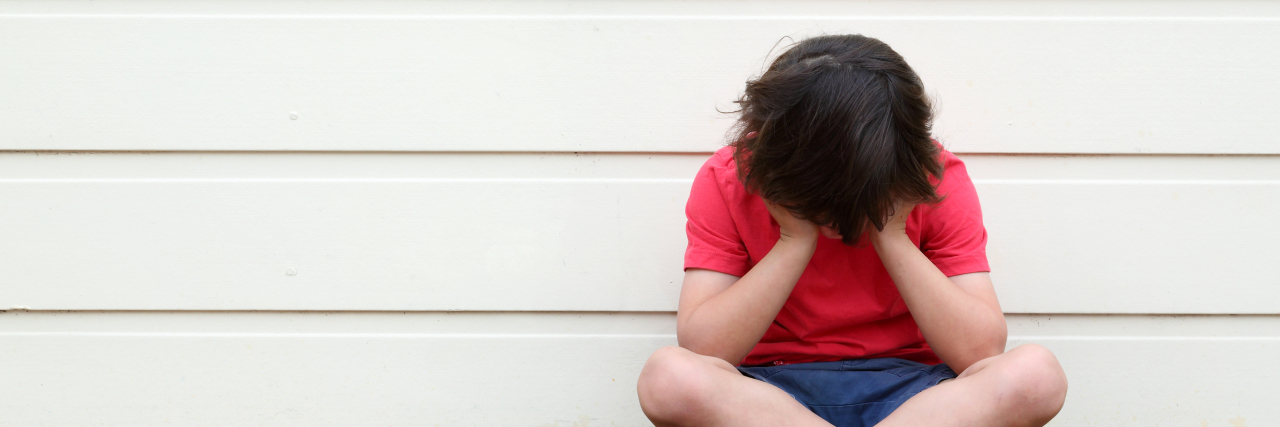Here’s another autistic-related rambling from me, related to a theory I have about autistic people and the generalization that we’re not outgoing and/or have little to no desire to interact with others.
Before I start though, I just want to acknowledge that every autistic person is their own individual, and the ways we all experience life can vary greatly. This is just from my own personal experiences and from hearing from other autistic people and parents of autistic people, so everything I’ll talk about is anecdotal, which shouldn’t be considered hard evidence.
This isn’t meant to prove a theory or a point, but merely to propose a theory that I’ve been thinking about for a couple of years now, and I’m definitely interested in hearing thoughts from other autistic folks and parents of autistic folks.
One of the things commonly associated with autism is that we have little to no desire to interact with others, and that we’re hyper introverted. That is definitely true for a lot of us. But for a little while now, I’ve been wondering how much of that is a learned, possibly defensive behavior. Sure there definitely are a lot of autistic folks who are naturally introverted, and there’s nothing wrong with that as long as the individual is happy and living their best life. But something I’ve noticed from talking with my parents and people who’ve known me since I was quite young, is that from a very young age, I was very outgoing and very interested in interacting with others. I used to be quite emotionally expressive, although I often didn’t express those emotions in a neurotypical way.
But as I grew up, I became more and more socially withdrawn and less emotionally expressive. Learning how to better manage and express emotions is a normal part of growing up, but I worked extremely hard to completely “kill my emotions.” Although really, I was just bottling them up or internalizing them.
I was bullied relentlessly growing up. One of my earliest school-related memories is sitting in circle time in kindergarten and the whole class chanting “Arik is a baby” repeatedly until the teacher, laughingly, asked them to stop. I often tried to correct my behaviors and change how I acted, quite hard. Trying to mimic the behaviors of others (specifically the “cool kids”), and moving around a lot as a child (I went to 13 different schools), I had many opportunities to reinvent myself, and I tried incredibly hard to mask my autistic traits. But every time I would eventually be met with relentless bullying. Although it would often go well early, it wouldn’t take long until the bullying began. This also had the effect that I kept masking over masking over masking over masking, and led to some personality problems I’m still dealing with today.
By the time I dropped out of school at 15, I had next to no desire to interact with others. I didn’t drop out because of my academic performance, but because I was just so full of anxiety from being bullied at school. When I dropped out, it wasn’t something I was planning on doing for a while. I wasn’t spending weeks or months bugging my parents about it. I came home during a lunch period and was able to convince my mother to let me drop out. Although I talked her into allowing it by convincing her to actually let me do an online high school program, I never finished that program. Instead, I just went and got my GED.
I went on a self-imposed social isolation period that lasted from around the time I dropped out until I moved to Portland. I did make a few attempts at becoming social and outgoing as an adult, with mixed success, and I have been able to make myself work full-time quite consistently as an adult.
It’s only recently, in the last few years, that I’ve recognized just how emotionally damaged I’ve become. I don’t say this because I’m looking for pity, sympathy, or attention, but I feel this is important to be open/upfront about, to a degree, whether it’s just to remind me or so others understand they’re not alone.
Moving to Portland and befriending a lot of wholesome and awesome people has helped to repair some of this damage, and helped me learn that it’s OK to feel and express emotions — although I still have a lot of work to do. I now know that my “asocial behaviors” and emotional repression were not my original nature and are not healthy for me. They are a direct result of a childhood of emotional trauma from relentless bullying and social failures.
At a very young age, throughout most of my childhood, until my teenage years, I naturally wanted and tried to be outgoing. I’ve always had social anxiety, but nowhere near as bad as it became in my teens and my adult years. And I’m pretty sure I’m far from alone in this. Talking to a lot of other autistic adults in real life and on the internet, I see similar stories, although I don’t think many of them fully recognize it themselves. I see similar stories being played out when I talk to parents of autistic children.
So while I know there are many autistic people who are naturally asocial and/or just don’t desire a whole lot of social interaction, I have been wondering a lot lately: How many of us were originally quite outgoing, only to be crushed and defeated so repeatedly, that we’ve become withdrawn and “asocial”? This might be extremely common with us, it’s just viewed as a natural state for us, instead of the result of being emotionally broken over and over again from repeated abuse. We deserve better.
Getty image by Mark Piovesan.

